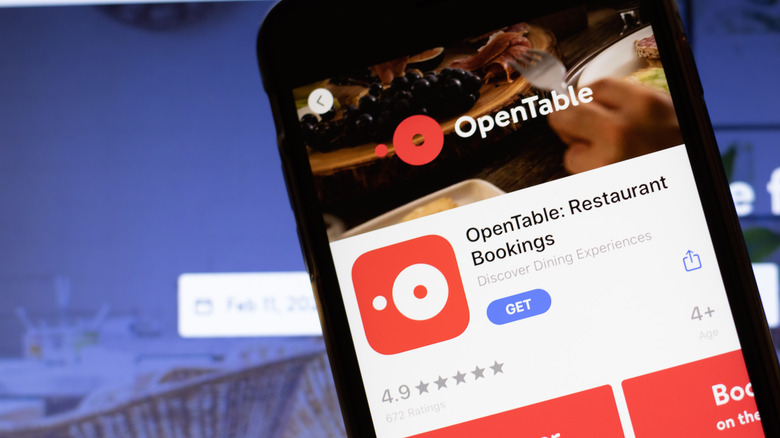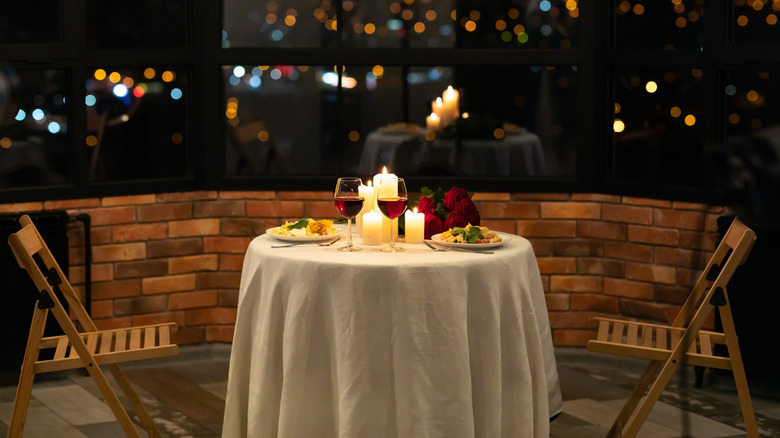The OpenTable Reservation Penalty You'll Want To Avoid
Reservations are commonplace among restaurants, be they smaller chains or high-end spots in big cities. They're a way of guaranteeing you and your party a table within a specific time slot (or range). For a restaurant, this may seem like a great idea, and to an extent, it is. According to Live About, guests with reservations are often in a better mood upon arrival since they don't have to deal with a wait. Reservations also provide a solid benchmark for how many guests will be dining at the establishment, making the planning process much easier for the kitchen and those who set up the dining room.
On the other hand, reservations could spell out a potential profit loss for a restaurant. This is because walk-ins are often turned away due to a lack of seating, and those who decide to mark themselves as a no-show take their business elsewhere, as Live About further discusses.
For the most part, it seems like reservations are here to stay, and with that, certain food apps and websites will likely prosper, such as Yelp, Table Agent, and OpenTable, per Eat. OpenTable seems to be one of the more popular ones, as location-based restaurants, new openings, and even experiences are some of the website's highlights. But before you make a reservation on its website, make sure you read up on its reservation penalty.
Try not to be a no-show
It happens. You make an online reservation in advance, via OpenTable, only to cancel last minute due to a change of plans. Or, sometimes, you end up becoming a no-show, which, according to OpenTable, occurs through one of the following: You don't show up, you're more than 15 minutes late, or you call to cancel within a 24-hour or 48-hour period.
If this happens once, twice, or even three times, no big deal. But four strikes and your account is suspended, per OpenTable's Terms of Use. Granted, it has to be four no-shows over the course of 12 months, but still, it's probably best to cancel a reservation as soon as you are able to prevent this no-show accumulation from occurring.
Canceling is, of course, way better than being a no-show, but the former may incur a cancellation fee from the restaurant (this depends on the restaurant, though). This is outlined by OpenTable, which mentions that sometimes you need a credit card to hold your reservation. So when you cancel, the restaurant may charge a fee to that credit card. (The cost widely varies from restaurant to restaurant.)
So next time you make a reservation to a top-rated restaurant with OpenTable, review its no-show and cancellation policies. It also helps to contact the restaurant to ask about its cancellation fees.

